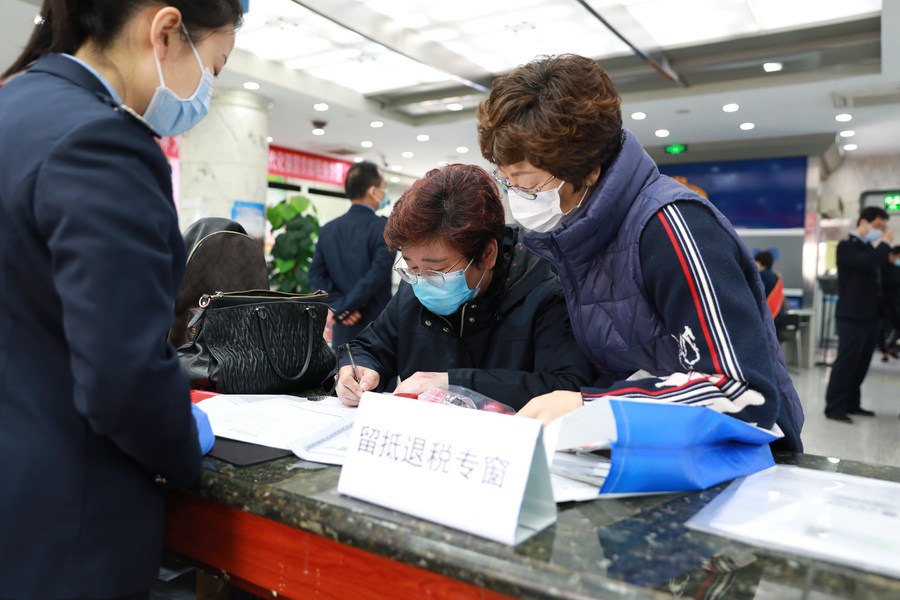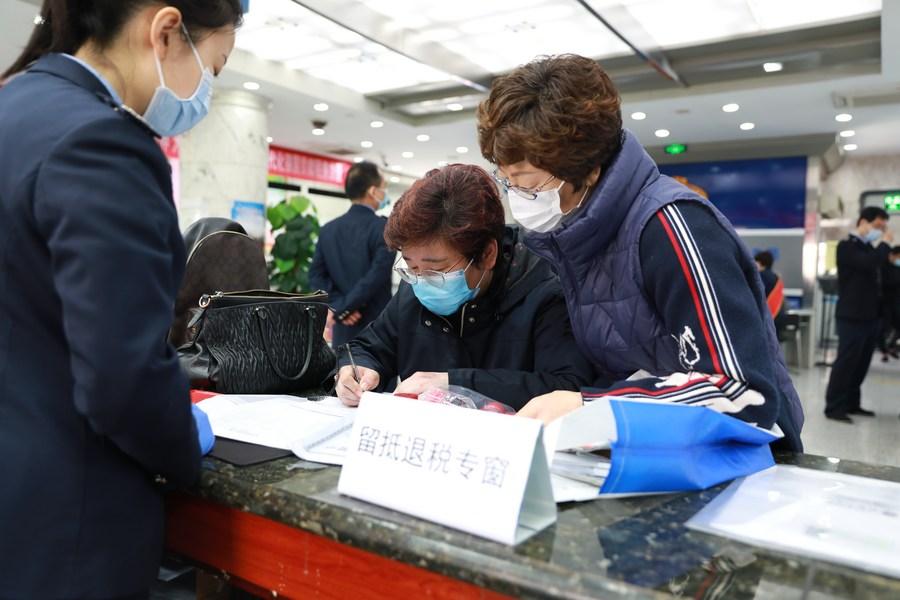
Tax payers get tax refunds for small and micro enterprises in Tianjin, north China, April 1, 2022. (Xinhua)
BEIJING, July 3 (Xinhua) -- Ministries in China have rolled out a raft of supportive policies to keep enterprises and self-employed businesses afloat amid the COVID-19 epidemic, with a focus on cutting fees and taxes.
The number of market entities registered in China stood at 159 million by the end of May, up 3.6 percent from that at the end of 2021. Among them, 50.12 million are enterprises and 107 million are self-employed businesses.
Market entities make up the confidence and resilience of China's economic growth, and they play key roles in keeping the world's second-largest economy stable, said Yu Jun, spokesperson for the State Administration for Market Regulation.
In addition to introducing a series of measures such as rent reduction and employment skills training, the country's top market regulator has worked to assist market entities affected by COVID-19 in other ways.
Its branch in south China's economic hub Guangdong Province has issued local micro, small and medium-sized enterprises free product quality testing coupons worth 20 million yuan (about 2.98 million U.S. dollars) in total, which has directly reduced corporate costs in this field.
The State Taxation Administration has unveiled a slew of supportive policies to ease enterprises' burden, including tax refunds, tax and fee cuts, and deferrals.
The combination of tax and fee cuts is estimated to relieve enterprises of 2.86 trillion yuan in expenses in the first half of this year.
Meanwhile, priorities have been given to small businesses as about 70 percent of the tax and fee support went to micro, small and medium-sized enterprises.
In a bid to facilitate financing for private enterprises from the bond market, the country's top securities regulator decided earlier this week that transaction fees for private firms' bond financing would be waived as much as possible, a move expected to cut fees worth about 160 million yuan each year.
"This measure, on the other hand, will encourage investors to buy private firms' bonds, boosting their financing volume," said Yuan Haixia, deputy director of the research institute of credit rating agency CCXI.
The latest financial data showed that both China's manufacturing and services sectors are on the road to recovery, with the purchasing managers' index in June bouncing back to expansion territory.




 A single purchase
A single purchase









